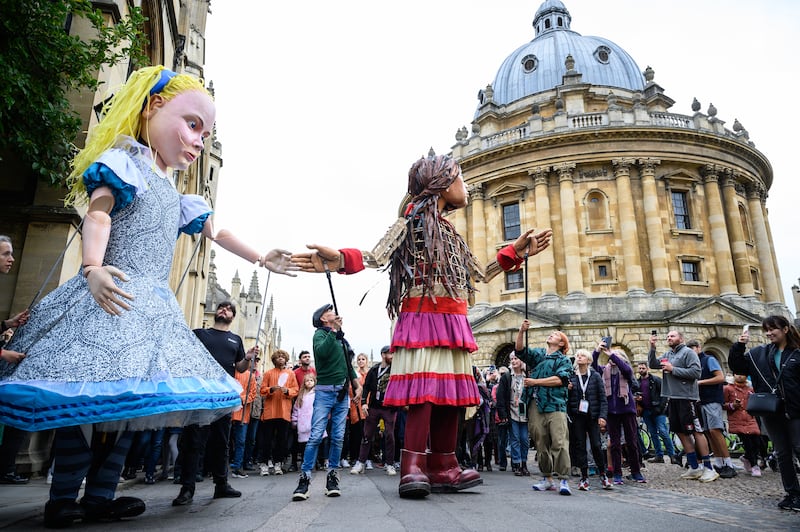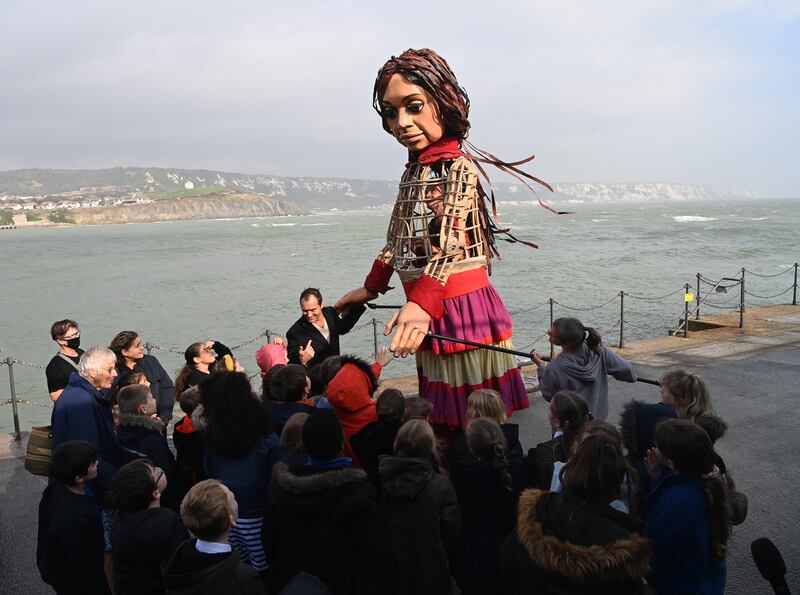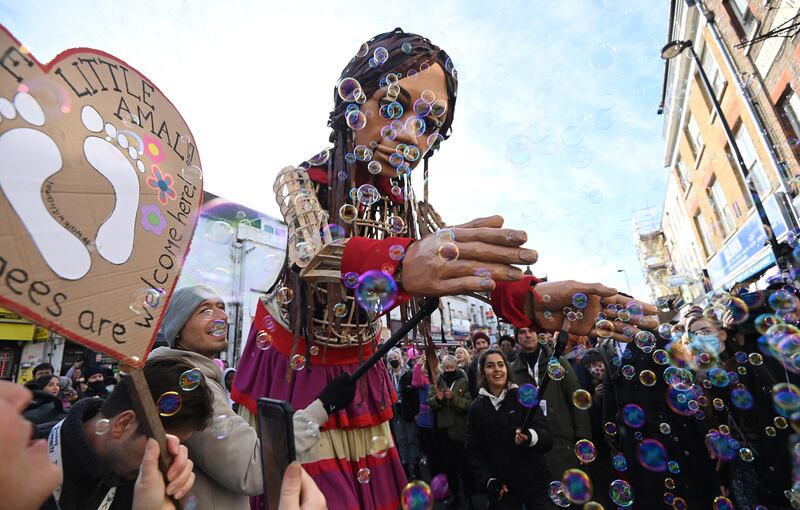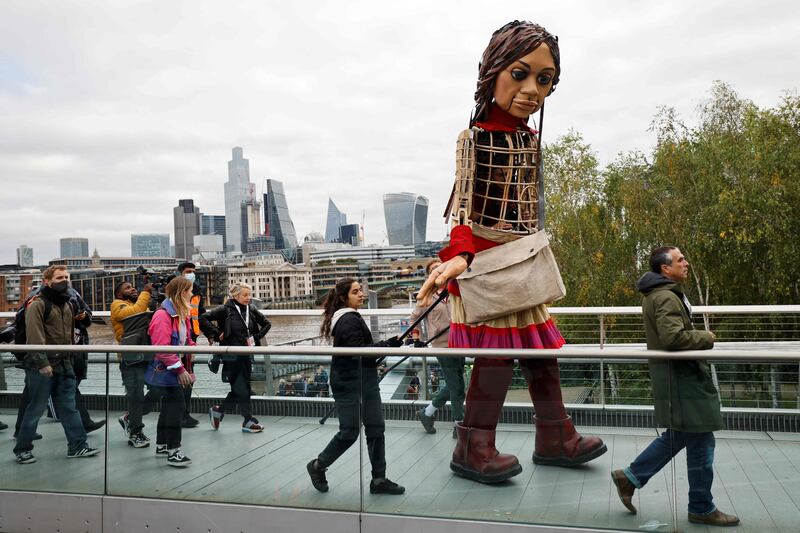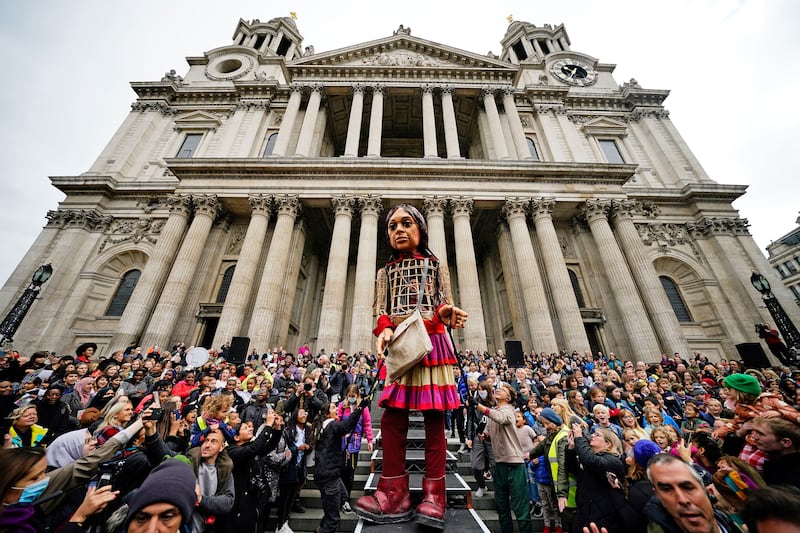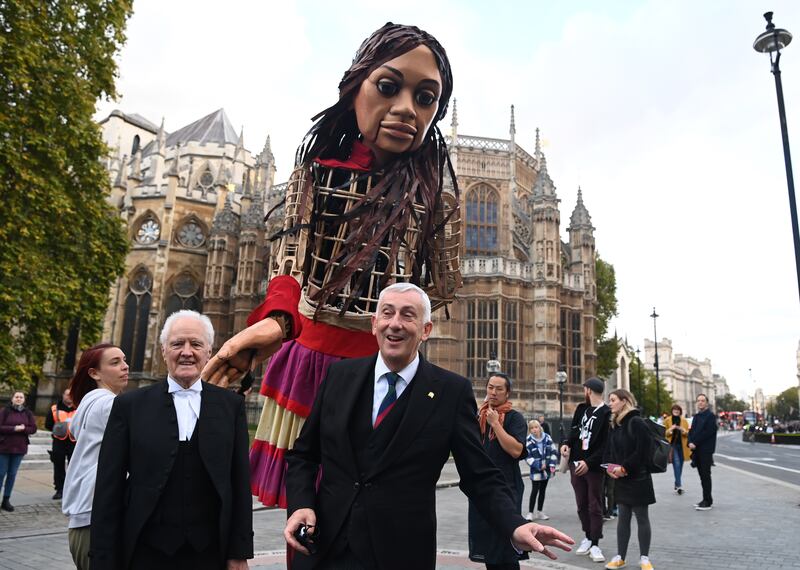The UK city of Oxford has welcomed the giant moving puppet, Little Amal, with their own oversized doll of Alice in Wonderland and a parade of events.
The show, called Amal Meets Alice, involved a procession through the city centre with the pair taking part in various performances along the way.
Created by award-winning Syrian author Nadine Kaadan, the mainly non-verbal story sees the two characters journey through the famous English city in search of Little Amal’s memories of her home in Syria.

Taking inspiration from Lewis Carroll’s Through the Looking-Glass, which marks its 150th anniversary this year, the story begins in the "Garden of Live Flowers" at the Botanic Gardens where the unaccompanied refugee child arrives with a bag of memories of the homeland she has fled. After an argument with the Red Queen leaves Amal's memories scattered all over Oxford, Alice takes her on a tour of her home town to find them.
Commissioned by The Story Museum, the procession through Oxford is part of a series of events taking place in the UK to mark the last leg of The Walk, an 8,000-kilometre journey across Europe undertaken by Little Amal, the 3.5-metre figure depicting an unaccompanied child refugee.
Kaadan told The National that as a big fan of Carroll, her task was at once exciting and daunting.
“It was hard because I had to merge these two very different stories and worlds but it was also easy because I love Alice and I also left Syria,” said Kaadan, who is not a refugee but left her homeland in 2011 because of the civil war.
In the absence of belongings, the children’s writer said that refugees often relied only on their memories to keep alive the people and places they had left behind.
“My favourite part writing this was that I used real memories,” said Kaadan, who ran a workshop in Oxford with refugee women from Syria, Iraq and Palestine to discuss their recollections of home.
“There was a lot of emotion,” she said. “They all remembered the excitement of first day of Eid and the new clothes they got as presents, so I incorporated that into the story. But in the end Amal gives her much-loved dress to Alice.”
In another scene, Amal teaches Alice to play football.
“Both characters have agency and are empowered," Kaadan said before the start of the procession. "It’s a story of two girls bonding and becoming friends. There are moments when both need to help each other and that is what life is about. Refugees aren’t just vulnerable characters, they bring richness and strength.”
Kaadan, who was on the BBC’s list of 100 inspirational women in 2020, said she still found it shocking that there was a “debate on how to treat unaccompanied children”, and sees “celebrating Amal” as a helpful way to “shift perception around refugees”.
The Story Museum worked with more than 24 creative, cultural and community partners to create the free outdoor event, many of whom are or work with refugees.
Director Caroline Jones told The National that the museum was “committed to storytelling” in all its forms, including “real life”. As part of the work around Amal’s visit, the museum has teamed up with local charity Asylum Welcome, to create a professional development programme for local adults with experience of being a refugee and/or asylum seeker. The ‘Beyond Amal’ programme offers training in oral storytelling, developing communication skills, confidence, resilience and other workplace skills.
Oxford city councillor Shaista Aziz said both the event and programme, which is partially funded by the local council, was a show of welcome to refugees and migrants in the city. “We want to support people’s full participation in our community, cultural and economic life and remember the importance of compassion, kindness, courage and our shared connections as human beings.”
